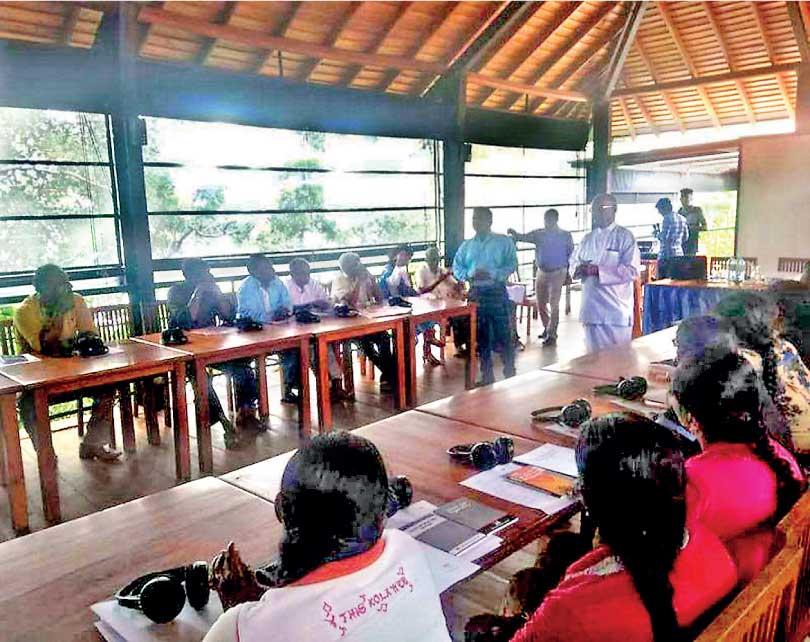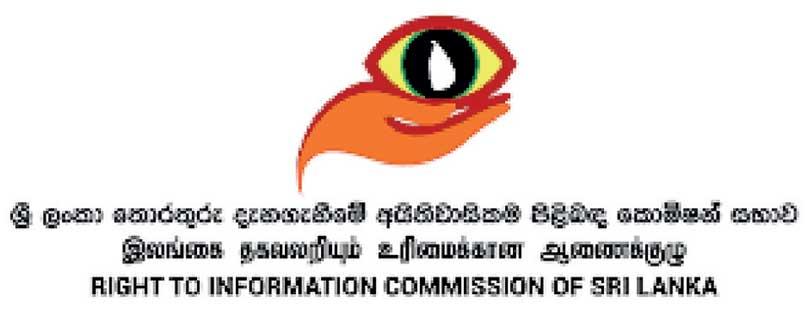11 Mar 2020 - {{hitsCtrl.values.hits}}

RTI training for civil societies in Sri Lanka (FILE PHOTO)
 Recently I was privy to a phone call between a journalist and a newly-minted editor at a government-owned Sinhala newspaper. The conversation dealt with the Right to Information Act (RTI). More precisely its use in a story to gain information.
Recently I was privy to a phone call between a journalist and a newly-minted editor at a government-owned Sinhala newspaper. The conversation dealt with the Right to Information Act (RTI). More precisely its use in a story to gain information.
For some unfathomable reason the editor was reticent to declaring that the information contained in the story was obtained through a RTI request. The dialogue became bizarre as it continued.
The writer, loss for words was trying to explain that clarification was needed to show how the information had been obtained. The editor was never on the same page. He kept insisting that the inclusion of this one detail, that the information was obtained through RTI requests could be accommodated if the journalist was getting paid from an NGO. The journalist was insisting that there was no such greasing going on, not at least in this case.
The editor however, was not convinced.
I am no expert on RTI, but I saw it as a tool to unlock public information from a state apparatus born, bred and living with the objective of keeping information away from the public other than making it public
The conversation harked back to a time when the RTI was introduced. It was a bizarre few months for me. On one side there was big noise to the introduction of this new act. Parallelly, on another side, there was stoney resistance for its wide application.
I sat through a presentation in New Delhi by two RTI proponents who could not make any sense on its validity and usefulness in the Sri Lankan context. They kept repeating how good it had been in India and how good it was going to be in Sri Lanka. A few weeks later, I had a revealing conversation with a journalist then working with Sri Lanka’s largest circulation newspaper. He told me that RTI was never going to gain wide acceptance as an effective resource within Sri Lanka media. “Because in our editorial it is seen as an NGO hack job,” he told me. The journalism community as a whole was resisting shoring up support for something that was going to be like a on-off switch for public information. It did not make sense.
I am no expert on RTI, but I saw it as a tool to unlock public information from a state apparatus born, bred and living with the objective of keeping information away from the public other than making it public. But the lack of support from within the journalism community was a reflection of an attitude that was as deeply engraved within the media as the unwillingness of our public service to be transparent.

Somewhere the media industry and the agencies and organisation that were in the business of improving the quality of that industry had gone in two widely divergent directions. They were almost polar opposites. On one side we had journalism training sessions, mostly done through overseas funding, planned and executed with very little national inputs from within the industry. The worst of these were under the control of those who were pretty devastating as armchair critics, but did not remember the last time they filed a news story.
On the other side of the spectrum, we had newsroom gatekeepers who had aged more than the oldest fossils. Their resistance to change and to adopt novel news reporting techniques was due to ignorance bred from a fear of change and transparency than anything else.
On one side we had journalism training sessions, mostly done through overseas funding, planned and executed with very little national inputs from within the industry
The same forced pulling in two different directions have been at each other. Of late there has been yet another surge of training sessions and workshops, this time on fact checking. I lead one such training of trainers. We were cognizant of online aptitudes among Sri Lankan journalists and made every effort to tailor-make the content. But even then, what we have realised is that each programme had to be rejigged depending on the location and the attendees.
And still I don’t think we have gained acceptance from the industry.
The writer is currently pursuing a Masters by Research at CQ University, Melbourne on online journalism and trauma Twitter - @amanthap
25 Oct 2024 3 hours ago
25 Oct 2024 5 hours ago
24 Oct 2024 7 hours ago
24 Oct 2024 7 hours ago
24 Oct 2024 7 hours ago